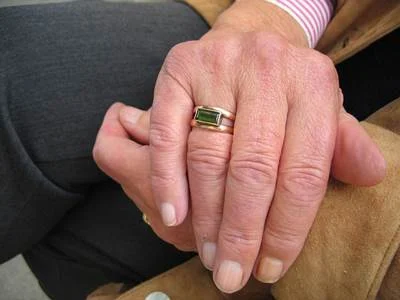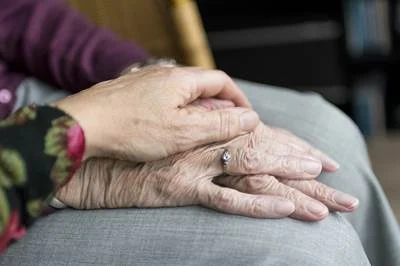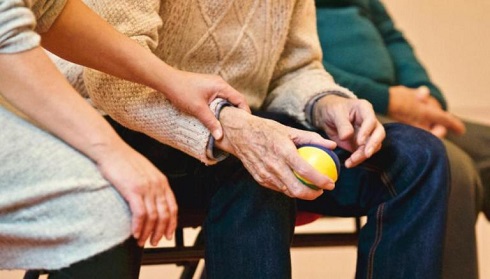How to Help Elderly Parents Adjust to Life without Driving

How to Help Elderly Parents Adjust to Life without Driving March 21, 2024 Being independent is very important for elderly parents and having to adjust to life without driving can be very difficult. Some seniors may try to hide the fact that their eyesight is failing, their reactions are slowing, and their driving skills are no longer what they used to be.It is possible to help elderly parents adjust to no longer driving themselves without it being too traumatic. However, the delicate situation requires a measure of understanding and tact.Here are some tips to helping seniors adjust to life without driving. Adjusting to Life Without Driving 1. Talk with your elderly parent The first step is to tactfully talk with your elderly parent about the need to give up the keys to the car. Maybe you have noticed some signs that they are no longer safe behind the wheel. Here are some tell-tale signs that it is time to give up driving: Unexplained dents and bumps in the bodywork or garage. Speeding and other driving violations. Do they have new glasses? Others, for example neighbors, have commented on their erratic driving. It is good to tactfully mention these situations. Help them to feel part of the decision-making process. 2. Offer alternative solutions One of main concerns that an elderly relative will have before giving up driving is how to cope with practical day-to-day situations. An elderly person needs to get around. So, try beforehand to think of some practical alternative arrangements. For example, could your elderly relative keep the car, but someone else do the driving? Be sure to check out public transport options in the area. 3. Have a practical schedule It’s obvious that no longer being able to drive will cause inconvenience to an elderly relative. So, try to work out a practical schedule for shopping, hospital and doctor appointments, and visiting friends. Knowing in advance these practical arrangements can make it easier for an elderly relative to adjust to no longer driving. 4. Use technology You can help your elderly relative to keep a measure of independence and control in their lives by introducing them to new technology. For example, online shopping can help a senior keep control on their groceries and other items they need to buy. You can teach them the basics of online shopping to alleviate any fear of providing their credit card information. Or, you could arrange that you complete the checkout once they have chosen their items.Although adjusting to life no longer driving can be a stressful time, you can do much to help your elderly relative enjoy life without driving. Product Category Years
How to discuss incontinence with an elderly loved one

How to discuss incontinence with an elderly loved one March 14, 2024 Discussing incontinence with an elderly loved one can be a very sensitive subject. It may be embarrassing for children of elderly parents to approach the subject. Very often, children may not want to offend their parents. However, seniors may not realize that there is a tell-tale odor in their home or coming from their clothing. Even though there are many discreet incontinence aids, seniors are hesitant to talk about the problem.However, discussing incontinence doesn’t have to be a big problem. You just need to know how to approach the subject and be tactful. In this article, you will find out top 3 tips on talking about incontinence to senior loved ones. 1. Think before you speak about incontinence One way to solve the issue of talking about incontinence with your loved one is to think about how best to approach the subject. At first, the elderly person may be on the defensive, so it’s good to try and be on their side.Make sure that they realize you have their best interests at heart. Very often, the first step could be to recommend visiting a doctor. Sometimes, the advice from a professional can be much more effective. 2. When to speak Very often, you can speak successfully about delicate issues when you choose the right moment. So, don’t just blurt something out about there being a strong smell of urine in the house and they should do something about it.Choose your moment wisely. Usually, this will be when you and your loved one are in a relaxing atmosphere. So, why not go for a walk in the park, play cards, or something else they enjoy doing.It’s also important to try and release any frustration about the situation from your mind. And irritation that you are harboring will usually come out in the tone of your voice. 3. How to speak about incontinence Be empathetic when you approach the subject of incontinence. Empathy means putting yourself in their shoes. This can help you choose the tone of voice and the proper words to cause the least embarrassment.It’s also important, to be honest and detailed about your observations. If they don’t realize there is a problem, this can help them seek the necessary help. If, your loved one goes on the defensive, don’t give up, but confirm your care and love for them. This can help your loved one to feel more at ease and less embarrassed. Product Category Years
How to Spot Symptoms of a Stroke

How to Spot Symptoms of a Stroke March 7, 2024 If you have to care for an elderly relative or aging parent, it is very important to quickly spot the symptoms of a stroke. Prompt medical attention is crucial to help minimize any permanent damage to the brain and prevent other complications. In fact, getting the proper first-aid treatment for stroke patients can be a matter of life and death. What is a Stroke? A stroke happens when blood flow is lost to part of the brain. As soon as this happens, that part of the brain stops functioning and brain cells begin to die off.According to Benjamin Wedro, MD, there is only a 3 to 4-hour window to administer drugs to get rid of the clots that are causing the stroke. These help to restore blood flow to the brain and will help boost chances of a better recovery. Why Act F.A.S.T. if You Notice Signs of Stroke The best way to spot the signs of a stroke is to remember the acronym F.A.S.T. This is what FAST stands for: Face: Face drooping often happens when a person has had a stroke. The best way to check this is to ask them to smile. If one side hangs lower than the other, it is a good indication that he or she has suffered a stroke. Arm: A person who has suffered even a minor stroke may experience some arm weakness. To check for symptoms of a stroke, ask the person to raise both of their arms. If they are unable to raise one arm or you notice that one arm starts drifting down, it is time to take action. Speech: Very often, a stroke victim will slur their words and their speech may be incomprehensible. You could ask them to talk to you or read something from a printed page. They also may have confusion when you are speaking to them. Time: It is essential that you quickly call for medical assistance as a stroke is a medical emergency. Speak clearly and concisely about the symptoms to the operator and tell that you suspect your loved one having a stroke. Remember, that if you spot the symptoms of an aging relative having a stroke, it’s essential to get treatment as soon as possible.Source: Stroke signs, symptoms, warning signs and treatment by MedicineNet.com Product Category Years
How to Communicate with Medical Staff on Behalf of Seniors

How to Communicate with Medical Staff on Behalf of Seniors February 29, 2024 If you have to care for an elderly relative, there will come a time when you need to communicate with medical staff on their behalf. Communicating with medical staff on behalf of seniors is an important aspect of caring for their needs. What are the best ways to communicate with doctors or nurses when caring for a senior person?In this article, you will learn about some of the best ways to communicate with medical personnel. What are the challenges you may face? Challenges of communicating on behalf of seniors First of all, it is important to recognize some of the challenges of speaking with medical professionals on behalf of someone you care for. These can by any of the following: Reluctance on the part of the elderly person for you to discuss their health with a nurse or doctor. Difficulty communicating with the senior person because of degenerative conditions like Alzheimer’s disease. Not having access to medical notes because of confidentiality. 3 ways to communicate with medical personnel if you are a caregiver Let’s look at what you may need to do to make sure and keep good lines of commutation between medical staff and the person you care for. 1. Be in the HIPPA contract First, you should make sure that you are included in the HIPPA contract. The HIPPA contract is the Health Insurance Portability and Accountability Act which guarantees confidentiality between patient and medical staff. (This could have different names in other countries).If you are in the HIPPA contract before you have to speak with a medical professional, you will find communicating much easier. This allows the doctor or nurse to speak about the senior’s overall health and medical conditions. 2. Develop a rapport with the doctor or nurses It is necessary to build up a relationship with doctors and nurses who have contact with the person under your care. This means spending some time talking with them and being available when the person you care for has an appointment. 3. Ask questions You should be in the habit of asking lots of questions when you deal with medical staff. In many cases, you need to relay this information to the person under your care. This may mean trying to understand complicated medical procedures or the side effects of medication.It is always a good idea to have a small notepad handy to jot down questions when they come to mind. Product Category Years
Meeting the Challenges of Caring for Elderly Parents at Home

Meeting the Challenges of Caring for Elderly Parents at Home February 22, 2024 Caring for older parents at home has its challenges. Home care for aging parents is an excellent way to save money and keep older ones in familiar surroundings. But providing constant care can take its toll on family members and the caregiver. Of course, each situation is different, and there’s no “one-size-fits-all” solution to senior care.However, if you have to care for elderly parents at home, here are some handy tips to help you be successful. 1. Assess the level of required care First, it’s vital to assess just how much care is necessary. For this, you may need to keep a list of the various daily, weekly, and monthly tasks where your parents need help. In some cases, you realize that seniors may just feel lonely and want more company. Whereas, in other cases, there may be a need to move them into your home. 2. Have a network of support After evaluating their needs, you need to be realistic about how much you can take on. So, it’s crucial to get the whole family involved and determine what social care is available locally. For example, suppose you’re the primary caregiver. In that case, you also need a vacation, time off, and enough time to look after yourself.Unfortunately, many caregivers end up with burnout and unable to care for anyone. 3. Use easy-ready meals Whether your aged parents receive care in their own home or your home, using nutritious ready-made meals can help give you more time. Shopping and cooking meals take a lot of work. If you have a stock of ready-meals, you can ensure that your parents always have enough to eat.You can also help prevent malnutrition because they’re not eating enough. 4. Make the home safe for seniors It’s essential to make sure and eliminate all slip, fall, or injury risks. In most cases, this involves installing grab bars, handrails, anti-slip mats, or other medical equipment that helps frail people stay steady on their feed. In some cases, local services may provide grants or additional assistance to install the necessary equipment. 5. Don’t feel guilty about what you can’t do One of the most critical factors of caregiving is to look after your own health. This means getting nutritious meals, plenty of sleep, and staying hydrated. If possible, you should exercise at least three times a week. Regular exercise doesn’t only keep you fit; it releases endorphins that can help you cope with stress better and feel happier. Product Category Years
The Benefits of Resistance Training for Seniors Who Are Housebound

The Benefits of Resistance Training for Seniors Who Are Housebound February 15, 2024 There are many benefits of resistance training for seniors who can’t get out the house. Resistance training can help older people build up strength and bone mass which can help prevent injury. This is especially important for housebound elderly people as they may become frail and weak if they can’t exercise.In this article, you will find out many reasons to encourage a housebound person you care for to do resistance training. What is resistance training? Resistance training involves using some kind of resistance to create contractions in muscles. As the muscles work harder, tiny microscopic tears form that quickly heal. Over time, this increases strength and muscle mass. The benefits of resistance training The benefits of resistance training have been well-documented. For example, according to the journal Current Sports Medicine Reports , adults who don’t exercise generally lose up to 8% of muscle mass every decade. However, regular resistance training can increase lean muscle weight, reduce body fat, and also improve metabolism.Some of the ways that resistance training can benefit an individual include: Improved movement control Faster walking speed Boosts cognitive abilities Gives more independence Improves insulin resistance Can resistance training actually benefit older people taking into consideration that they may be housebound? How resistance training benefits seniors Resistance training benefits seniors the same way as it benefits younger adults. The journal Sports Medicine reported that resistance training in the over 60s can help offset many age-related health problems. Older adults who do resistance training have better muscle tone, more active cognitive abilities, and less muscle atrophy than seniors who are inactive. How to get started with resistance training for seniors When helping housebound seniors get the benefit of resistance training, it’s important to provide proper supervision and have any necessary medical equipment. How can you get the elderly person in care to start resistance training? Here are some helpful ideas: Speak to their doctor about any underlying health concerns and a physical examination if necessary. Arrange for a professional trainer to call at the home to develop a resistance training program. Provide adequate supervision for the senior person, especially at the start. Always start slow and stop immediately if there is any pain. Warm up and cool down before and after each exercise session. Sources: 1. Curr Sports Med Rep. 2012 Jul-Aug;11(4):209-16. 2. Sports Med. 2004;34(5):329-48. Product Category Years
How to Care for a Senior who Resists Care

How to Care for a Senior who Resists Care February 8, 2024 Knowing the best way to care for an elderly person who refuses to receive care is challenging. Cognitive decline can be distressing to see and can result in your loved one acting out of character. Refusing care could be a sign of emotional issues, poor mental heal, or physical problems. As a caregiver, it can be difficult to experience see a loved one refusing care they desperately need for their wellbeing.In this article, you will find out some practical tips on caring for a senior who resists care.However, the first step helping such a person is to understand why a person could refuse needed medical care in the first place. Why Elderly Persons May Refuse Care When discussing the reasons why some senior citizens don’t accept daycare, researchers have identified a number of causes.The journal Aging Mental Health reports that it’s common for people with dementia to think they don’t need regular care. Some seniors also prefer to be on their own or worry about losing their independence. Undiagnosed depression can also cause someone to resist efforts to give them care. 5 Ways to Provide Care When a Senior Refuses it Let’s look at some simple ways to help someone accept necessary medical care. 1. Determine the level of care needed First of all, it is necessary to assess how much care is needed. Usually, the person’s doctor or another medical professional can give advice on their care needs. There may be a few options that can work well. 2. Choose the best time It’s critical to choose the best time to approach the subject of extra care. This is especially true if you suspect the elderly person will not be keen on the idea. Pick a time when you know the person will be relaxed. 3. Find out their preferences One important step to take is to learn if your loved one has any preferences. Sometimes, seniors are resistant to care because they feel matters have been taken out of their hands. Even though it may not be possible to meet all of their wishes, the conversation will usually go better if they feel their viewpoints have been considered. 4. Get some support from family members If you find that your loved one refuses care, it is usually good to get some help from other members of the family. If that is not possible, kind but firm words from their doctor may help persuade them about the need for extra care. 5. Don’t give up It’s important not to give up in helping your loved one to accept the needed care. In time, they may become less resistant to change in getting the care they need. You could suggest a trial which may do much to help alleviate their fears of getting extra care. Product Category Years
Natural Ways to Relieve Stress for Seniors

Natural Ways to Relieve Stress for Seniors February 1, 2024 Although stress can affect anyone, older adults can be especially prone to suffering from anxiety. Seniors can be under intense stress after the loss of a loved one, having to deal with mobility issues, or managing a chronic illness.It can be challenging for seniors to manage stress naturally. Usually, younger people can deal with stress easier because it is easier to engage in physical activity or adapt to changing circumstances easier. For an older person, age-related problems may restrict activity and physical activity may require more effort.How can you help an older adult in your care to relieve stress naturally? Here are 3 excellent stress relief tips for seniors. These methods to get rid of stress will also have a positive impact on their health. 1. Physical activity to relieve stress Physical exercise is an excellent way to help relieve anxiety and also improve physical stamina.Research published in 2017 found that members of the older population who can do some aerobic, flexibility, balance, or resistance training enjoy a better quality of life. Any physical exercise program should be tailored to the needs of the older adult to achieve maximal benefits. (1)Physical exercise can also help to improve bone mineral density, make walking easier, and also manage weight better. 2. Enjoy a healthy diet You should also make sure that the older person in your care enjoys a healthy, well-balanced diet that includes enough nutrients.A healthy diet should include fresh fruit and vegetables, unsaturated healthy fats, complex carbohydrates, and be as sugar-free as possible. This type of healthy diet can help to relieve stress, reduce chronic inflammation, and regulate blood pressure more effectively. 3. Connect with family and friends If you notice that a loved one in your care is suffering from stress, helping them to connect with others can help to lower stress levels.One study found that receiving social support is connected with better physical and mental health.If possible, you could suggest that they join a local group connected to their interests or a support group if they need emotional support. You may be able to arrange that they keep in touch with children and grandchildren through technology like video calls. Product Category Years
3 Ways to Protect Seniors from Identity Theft

3 Ways to Protect Seniors from Identity Theft January 24, 2024 With the increase in technology, it is become very important to help protect seniors from identity theft. Unfortunately, elderly people are often the target of criminals who want to steal personally identify information and illegally misuse personal data. According to some sources, identity theft happens once every 3 seconds.If you are caring for an elderly parent or you want to assist your grandparents, how can you protect them from identity theft? Let’s look at 3 ways to help prevent identity theft. Why are seniors targeted for identity theft? There are a number of reasons why seniors are susceptible to becoming victims of ID fraud. For example, the Federal Trade Commission reported some reasons, including: they are generally more trusting of people they often don’t understand the security nuances of modern technology they may not tell family members about fraud because of embarrassment caregivers and others have access to personal records and social security numbers How to protect older people from identity theft Let’s look at 3 practical ways that you can help your elderly loved one becoming a victim of a scam. 1. Background check on caregivers It’s a sad fact that sometimes ID theft is carried out by people that elderly people trust. So, when arranging for any kind of home care, always do thorough background checks or hire caregivers from a reputable company.It’s also a good idea to keep personal documents and financial information in a secure place like a safe. You should also educate your elderly relative that they should never allow anyone access to these. If in doubt, they can call you to double check. 2. Educate older ones about ID theft Speak to your elderly relative or parent about the different ways that thieves use to scam older people. One of the most common ways that seniors become victims is by responding to fraudulent calls on landlines. So, make sure that they understand never to give out personal information on the telephone, even if it seems to come from a trusted source like the bank or government agency.With more seniors getting online, it’s important to educate them about phishing scams. For example, they should never click on links in emails or respond to suspicious emails. Some thieves send emails that look like it comes from the bank and requests to click a link to keep an account open. 3. Monitor their financial activity It’s also a good idea to keep an eye on their bank accounts so that you can spot fraudulent activity. For example, you can sign up to be notified of any changes in their bank account. Or, you can sign them up for ID theft protection. Many companies offer family plans for a reasonable yearly subscription. Product Category Years
4 Tips to Prepare a Senior’s Home for Winter

4 Ways Seniors Can Save Money on Medication January 18, 2024 With temperatures dropping, it’s important to start preparing a senior’s home for winter. Older people feel the cold more than adults and it is essential that steps are taken to keep them warm during wintertime. Of course, you need to think about how to reduce the possibility of slipping on fallen leaves in the fall and to keep paths and steps outside ice-free.Here are our top 4 quick tips on equipment you need if a person is receiving home care and how to prepare a senior’s home for winter. 1. Get furnaces serviced and checked The fall is the time to get furnaces maintained and checked. This has a number of beneficial ways to help keep a senior’s house warm in winter.First, a professional will check for worn parts and replace any old parts that may break in the next few months. This will prevent a furnace breaking down just when your elderly relative is needing heat the most.Second, maintaining a heating system properly will help reduce costs and improve the efficiency of the furnace. 2. Install bright lights Make sure that lighting is adequate in the house. Winter nights are darker and longer than summertime and making sure that there are bright lights installed will prevent tripping on items around the house. LED lighting is an extremely cost effective way to brighten up a home for very little running costs.There is also another reason to have brighter lighting in wintertime. Light can help to offset depression and prevent symptoms of seasonal affective disorder. 3. Get a portable heater Make sure that you have a portable heater in rooms where the elderly person spends most of his or her time. This can help to easily increase the temperature in the room if it is necessary. Remember to make sure that the heater isn’t connected to an extension cable as this can be a trip hazard. 4. Be well equipped Closer to wintertime, it’s important to make sure that there are enough provisions in the house. Stock the cupboards well with tinned food, make sure that there are enough blankets in the home, and there is a flashlight with new batteries. This will make sure that in the event of harsh weather, your loved one has everything they need to keep safe and warm. Product Category Years







